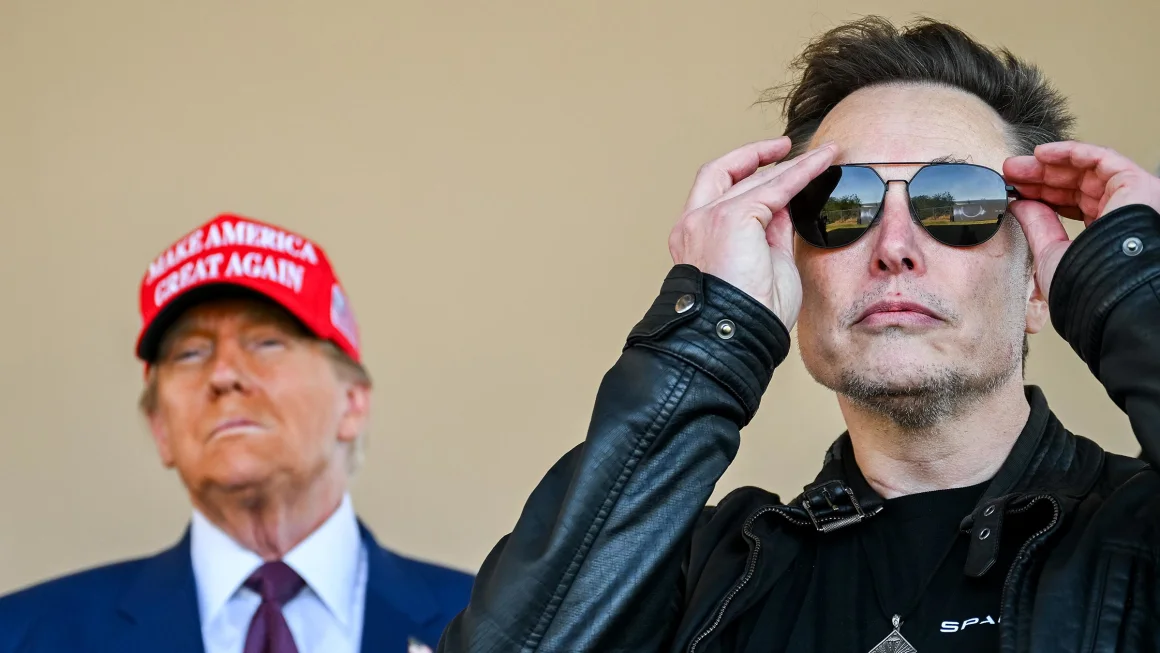After days of public feuding, fiery posts, and even a possible call-off of government contracts, President Donald Trump says he’s “not particularly interested” in talking to Elon Musk. But behind the political theatre lies an uncomfortable truth: Trump may not be able to cut ties with Musk, even if he wants to.
The alliance between the world’s most powerful political figure and the world’s wealthiest entrepreneur has turned toxic — with Trump calling Musk “the man who lost his mind,” and Musk firing back with allegations and threats to limit government access to his technology.
But despite the feud, the US government’s reliance on Musk’s companies — SpaceX, Tesla, Starlink, and Neuralink — is deeper than ever.
Divorce Would Be “Messy”
During the campaign and into Trump’s second term, Musk reportedly spent over $300 million supporting Trump’s candidacy. In return, Musk gained White House access and policy influence — especially around deregulation and privatization of federal tech infrastructure.
But now, that political bromance has ended in what one analyst called a “rapid unscheduled disassembly.”
The president has suggested canceling Musk’s government contracts. Musk has floated blocking NASA’s use of his spacecraft. But both quickly backtracked. Because a true separation isn’t that simple.
Government Can’t Function Without SpaceX
Musk’s companies are central to American space dominance and connectivity:
- NASA relies on SpaceX’s Falcon 9 and Dragon spacecraft to shuttle astronauts to the ISS.
- The Pentagon depends on Starlink’s satellite internet for military and intelligence operations.
- SpaceX has received more than $20 billion in federal contracts from NASA and the Department of Defense.
- SpaceX is also set to dispose of the ISS and support moon and Mars missions.
- And the FAA is currently working with Starlink to upgrade US air traffic control systems — a key national security initiative.
As CNN noted, no other company can fill the role SpaceX plays. Boeing’s Starliner has suffered critical failures, leaving no real backup if SpaceX were sidelined.
Trump’s Tools: Regulation, Retaliation… and Risk
Musk’s empire remains vulnerable to federal agencies — including the FAA (SpaceX), FDA (Neuralink), FCC (X), and NHTSA (Tesla). Trump has shown in the past he’s willing to weaponize regulatory pressure. Just ask Harvard or his critics in the media.
But openly using government force to punish a former ally would ignite accusations of autocracy — especially as Trump faces re-election and scrutiny from allies and adversaries alike.
“Then he’ll look exactly like what people accuse him of — an autocrat,” tech journalist Kara Swisher said Friday on CNN.
“It would hurt the country if Trump really targeted Musk,” she added, pointing out that Musk’s work in AI and space exploration is too important to sabotage.
What’s Next?
While Tesla shares have lost over 14% in the fallout — wiping out more than $150 billion in value — Musk’s grip on federal infrastructure hasn’t loosened. And despite Trump’s frustrations, cutting ties with Musk would hurt America’s space, defense, and AI ambitions.
The feud may continue to simmer on social media, but in Washington and Silicon Valley, Trump and Musk may be locked in a marriage of necessity — not affection.
Disclosure: This article does not represent investment advice. The content and materials featured on this page are for educational purposes only.
Related:
Elon Musk Empire Under Fire: What Trump’s Revenge Could Mean for Tesla and SpaceX
“You Mean Man Who Lost His Mind?” — Trump Slams Door on Musk










